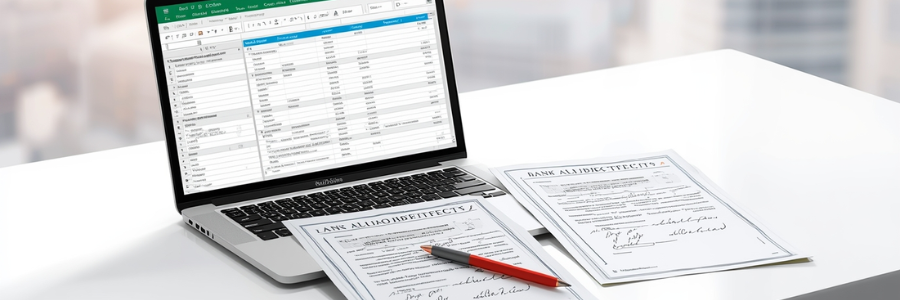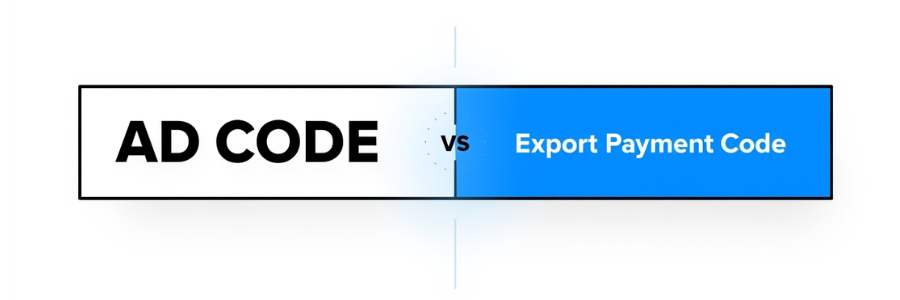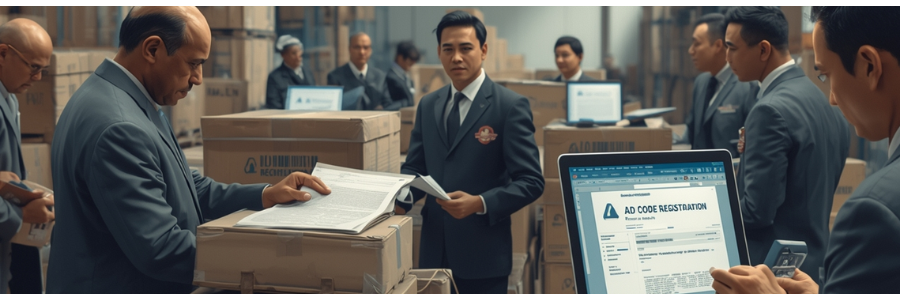How Fintech Tools Are Simplifying AD Code Applications for Exporters?
The international market and its activities are complex. To chase all these parameters, the exporters and importers are required to meet the requirements of the regulatory authority. The discussion starts with the AD (Authorized Dealer) code. The code comes with 14-digit characters, issued by the banks. AD code registration is helpful for customs clearance and foreign exchange management, including facilitating the export-supported incentives. In addition, Fintech performs a vital role by streamlining the AD code registration process. Let’s break down the page to know how the Fintech tools are transforming the traditional registration method to make the current method faster and hassle-free.
A. Understanding AD Code and Its Role in Exports
For smooth foreign trade operations, export businesses are required to obtain the AD code certificate. The authorization allows the businesses to deal in foreign exchange transactions. Meanwhile, the AD, or Authorized Dealer, code contains a 14-digit unique alphanumeric code. The banks that are authorized by the RBI to deal in foreign exchange issue the AD code to exporters and importers. AD code bank account registration is important for conducting international trade operations legally. It ensures that the exporter is receiving the currency from a legitimate channel. For shipping bill filing, the AD code letter is needed to register on the ICEGATE portal.
B. What Common Challenges Arise with Manual AD Code Filing?
Manual AD code filing results in various errors that impact the application. The common challenges with manual AD code filing arise:
-
High Human Error Risks
Completing the data entry manually can lead to multiple errors. For the successful registration, the applicants are required to submit all the supporting documents. An incomplete or missing document will lead to immediate application rejection. A minor change of the company name across the documents will lead to immediate rejection.
-
Delay in Application Processing
The manual AD code filing takes a lot of time. Manual filing is a time-consuming process that disturbs the processing supply chain. It directly impacts the bank and business verification. Even the bank delayed issuing the AD code letter due to incorrect information. Upon document submission, if the customs authority verifies all the details manually, it will take time for customs approval. The process might take weeks.
-
Port-Specific Registration Issues
Once the AD code is registered at a single port, it is available to all ports automatically from where exporters want to export. However, most of the ports don’t have the digital system to verify the exporter’s bank account and other major details. Manually managing the registration ports manually might be complex and time-consuming.
-
Fail to Register on ICEGATE
To activate the AD code for customs clearance and generate the shipping bills, exporters need to link it to the ICEGATE portal. Manually trying to register the code on the portal can be challenging or impossible. Failure to generate the shipping bill leads to rejection by the customs department.
C. The Rise of Fintech in Export Management
Fintech stands for ‘Financial Technology.’ It refers to the use of digital technology to improve all financial services. It covers a wide range of applications, from mobile banking to online payments, and many more. The majority of fintech tools are used to streamline the service through digital means, which makes the process more efficient and user-friendly.
D. What is the Fintech Role in Export Management?
Several Fintech companies are active and continuously converting the traditional banking system into a digital form.
- It enhances the digital service to provide faster, accessible, and zero-cost financing options.
- The platforms designed by Fintech companies allow the export businesses to sell their unpaid invoices to third parties.
- Due to the AI-driven technology, it fetches the current and old transaction history.
- With drastic changes, it has improved the overall speed, cost, and transparency for international exchange.
- The IoT-based platform allows businesses or exporters to track shipments live and get real-time information.
E. The Top fintech tools in the export ecosystem
Fintech tools for providing fast and reliable digital solutions, including a smooth foreign exchange. While the tools are customized for the different export ecosystems. These are categorized as
1. Business Bank and Payments
|
Platform |
Country |
|
RazorpayX |
India |
|
Tide |
UK/India |
|
Wise |
Global |
-
The Export Finance Platforms
|
Platforms |
Country |
|
Credlix |
India |
|
Drip Capital |
Global |
|
KredX |
India |
|
MODIFI |
Global |
|
Marco |
Global |
-
Border Trade Finance Ecosystem
|
Platforms |
Country |
|
Contour |
Global |
|
Tradeteq |
Global |
|
Komgo |
Global |
D. How Fintech Tools Simplify AD Code Applications?
With the development of fintech tools, the AD code registration process has become more reliable and transparent. AD code registration for exporters is crucial to get international trade facilities. However, these activities are smooth with fintech tools. Basically, it digitizes and automates the major parts of the process. In short, these tools reduce the burden of complex, heavy paper management and manual activities. All these processes have now turned fully digital. The tools are aligning with the customs platform, ICEGATE (Indian Customs Electronic Gateway). Here it is in more detail:
-
Documents Collection through Online Guide
Fintech platforms and services assist the applicants related to document collection. It is a guide to the important documents exporters are required to collect during the AD code filing.
For example, the platform will highlight that you need to provide an active IEC (Import-Export Code), GST certificate, and bank information.
-
Facilitate Bank Communication
Traditionally, the exporters personally need to approach the bank for issuing the AD code on their letterhead. However, with fintech platforms and services, it facilitates smooth communication between the banks and exporters. Most of the banks offer a side application step for AD code issuance.
-
Smooth Registration on ICEGATE
AD code filing on the ICEGATE portal is essential for customs clearance and shipping bill generation. Manually navigating the ICEGATE portal requirements might be complex for new export houses. But the fintech digital guidance is on the portal. It is helpful to minimize human errors.
-
Provides Global Payment Management
Most of the companies or platforms, like Razorpay and PayGlocal, offer a single and effective dashboard for all domestic and international transactions. Through it, the export houses can gain visibility into their global financial operations.
User Query: Common Mistakes to Avoid During AD Code Registration
E. Final Thoughts | AD Code registration on the ICEGATE Portal
In essence, the parameters of fintech tools simplify the AD code application requirements. In short, it makes paperwork digital, provides error-free registration, automates application submissions, and generates effective integration. Fintech drastically converts the traditional manual application registration into a fast, less time-consuming process with real-time data updates. Follow the fintech guide to streamline the AD code bank account registration process seamlessly. For legal assistance or a registration consultant, visit the LegalRaasta.com website.
F. Explore our interactive FAQs related to AD Code with Fintech Tools
- How AD code registration process depend on fintech tools?
Ans. Fintech platforms are not active for issuing the AD code to exporters, but they create the fundamental digital blocks for streamlining the registration process. In short, it offers the digital infrastructure to exporters.
- How to update my AD code with customs?
Ans. To update the AD code detail with customs, visit the ICEGATE portal and navigate to the ‘Foreign Remittance Account (AD Code)’ section. Add the new bank details and other related details.
- Which programming language is used by fintech tools during the AD code registration process?
Ans. The fintech platform uses mixed programming languages and technologies to facilitate the route for AD code registration. It is categorized as Python and Java used for backend language, HTML5 or CSS3 for front-end language, PostgreSQL or MySQL for database, etc.
- How can exporters store their AD code registration letter?
Ans. The fintech platforms offer the digital storage option to keep all documents, including the AD code letter, secure.
- What are the challenges without AD code?
Ans. Not having a valid AD code can raise multiple challenges for export businesses that deal in foreign exchange. These significant challenges can be clearing goods legally, being stuck with foreign payments, or being restricted from government export incentives.










